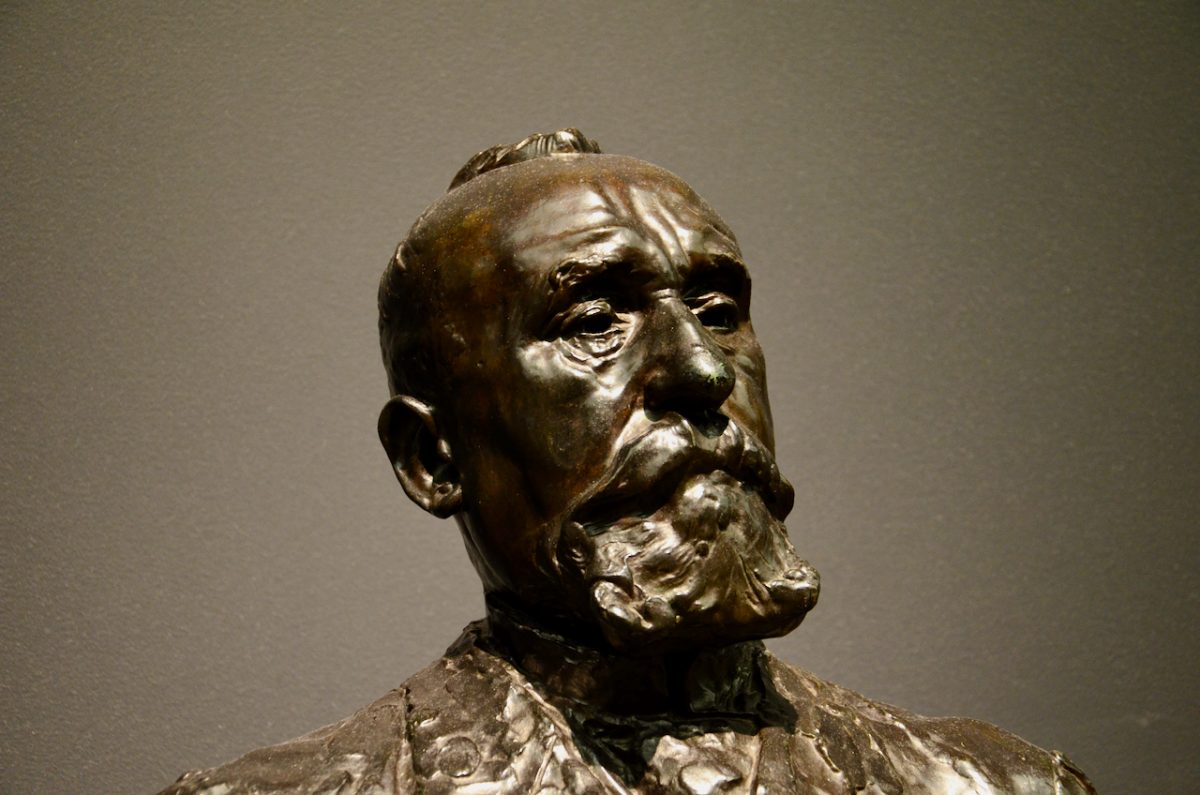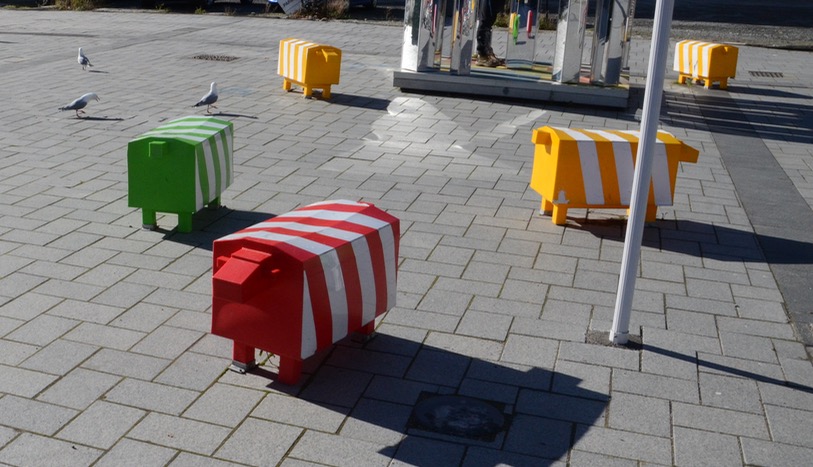Two years ago my sister’s oldest child went off to college. As a marker for that occasion I wrote up some thoughts on what I think college student’s should know. In a little while my sister’s youngest child is headed off to college as well; so I decided it’s time to write part two.
Since my wife is a college professor, and I’m framing my understanding as being her husband, I need to be clear: these are my thoughts. They are not hers. They are not those of her colleagues, or any of our other friends who are college professors. Yes, my ideas are influenced by being friends with those folks, and I hope they agree with me. But in the end, this advice is mine. If you want advice from a college professor — well college students have easy access to those and should politely ask them directly.
Also, for some strange reason it turns out that older child actually reads this blog (despite complaints that the posts about work are boring — love you too bud, they get the most traffic). So, Ben, open invitation to write a rebuttal or addendum to support your sibling and any other college students who stumble in here.
Read the Syllabus
While most of this post covers new ground, this point deserves repeating. It was top of mind two years ago, and is top of mind now. When professors talk about things their students do wrong this is what they talk about the most. Yes, the syllabus is boring — trust me I know, I’ve edited plenty of them. Yes they are often oddly long. But they are critical to success, and contain important information like what books to buy, when to read them, and what your deadlines are. So suck it up, and read them! There do exist courses and professors where you can get away without doing this, but it will never hurt you, costs you 15 minutes a course at most, and could save your tail.
Take a Variety of Things
Use college as a time to explore new ideas and different fields of study. When I think about the courses I took in college, it’s hard to know how I would have predicted which were going to be valuable to me still 20 years on.
I took a course of censorship taught by a Russian language professor. That course forced me to think about ideas of self-expression, our laws, and forms of protest. It also gave me ongoing interest in the impact of the work of Robert Maplethorpe and other controversial American artists. And that interest has left me space for my understanding to grow and change over time.
Ceramics helped me learn to think critically about my own work. It’s a class I cite frequently when working with less experienced developers to help them improve their work.
Non-required CS courses taught me skills I use almost every day at work; more than most of the required courses.
Religious Studies courses forced me to write in a formal way about creative ideas; a skill that serves me well on a regular basis.
I wouldn’t have told you any of that was the important take away when I registered for those classes. I took other classes expecting great things, but that failed to deliver for me. So if the class looks vaguely interesting, consider taking it, even if you don’t expect it’ll help you later.
Pay Attention to Courses You Can’t Take Later
There are a few things I didn’t take, like English Comp., because they were only open to first and second year students. I wanted to take some of those classes late in my time at Hamilton, but was locked out. It was totally my fault because I didn’t plan ahead. Plan ahead!
Don’t Use All Your Accommodations
This is probably my most controversial piece of advice: Don’t use all your learning accommodations.
I want to be clear, I support forcing colleges to provide needed accommodations. Learning accommodations are critically important to the success of many students, and colleges should make everything available to all students who are entitled to have them. But that’s the college’s side of the relationship. While college’s should provide them, students should think critically about which they leverage.
- Some accommodations are absolutely critical to all who need them.
- Some accommodations are critical to some students in some courses.
- Some accommodations are offered because we don’t teach kids good learning techniques when they struggle.
If your accommodation is in the second group reflect on whether or not accommodations in the courses you’re taking will support deep learning. When your accommodation is in that last set, seek out better ways to overcome the challenges. You can tell the difference, in part, by asking yourself how the accommodation actually helps you learn better, not just complete an assessment better or feel like you’re learning faster. Use the support you need not the support that makes learning feel easy or comfortable. Learning should be hard. A little friction in the learning process helps you learn better.
Understand that when you finish your BA the number of accommodations available to you will drop significantly. Typical work places are held to a very different standard than educational institutions. Again I believe they should meet their legal obligations, but deadline extensions or “extended time” may come with consequences for just asking. And graduate programs rarely offer any for non-physical disabilities (just because the law says they should, doesn’t mean they do so without consequences).
To thrive after college you will need to find tools of your own to overcome many of the challenges that lead to adjustments being offered in a classroom setting. You might as well start looking for those now.
Learn How to Learn
The most important thing to learn in college is how to learn!
The exact facts and figures you learn in college aren’t really the point the exercise. They are interesting, and can provide you important insights, but the details won’t last. If you go on in a field you’ll deepen your knowledge, and likely replace large portions as the field advances. If you don’t go on in a field you aren’t likely to use exact facts, figures, and formulas. The take aways longer term come in the form of general concepts and stories to help you, hopefully, remember deeper truths.
We live in a world of constantly advancing knowledge. You will need to learn some of that new information after you graduate. You will need to learn some it without the benefit of formal instruction. Make sure you know how to learn independently, without support of professors or formal direction.
You also need to know how to sort good information from bad information. In college your professor will do a lot of this for you. Later it’ll be your job. Good information doesn’t always agree with you, good information sometimes reveals truths that deviate from your world view. Sometimes what’s true forces us to rethink how we act, think, and vote. Be sure you know how to sort the good from the junk.
Say “Yes” to Things
When in doubt, say yes to offered experiences. Try things you’re unsure about, go places you worry will be boring, listen respectfully to speakers who offend you, go to concerts of artists you’ve never heard of, and generally take advantage of opportunities that present themselves.
One of the most memorable talks I attended in college was by Oliver North. No one made me go (that Russian professor made me go see Stanley Fish, which I’m also glad I did even though he was painfully boring and I disagreed with his pro-censorship argument), it just seemed like I should attend. Listening to him try to justify his crimes was insightful for me. Not because he convinced me of his views, but because it helped me understand the signs of failure; 20 years after his disgrace it was all he talked about. He had supporters in the room, but that was all they were interested in too. It was a night focused on a disgraced past.
The same was true, although to a lessor extent, of F.W. de Klerk who I got to listen to as he justify his role in apartheid before he became a reformer. Desmond Tutu‘s talk was a stark contrast as he focused on his then-recent work and how to build on it, not the work that had earned him a Nobel Prize — that was old news to him. Jimmy Carter‘s talk was fascinating (and somehow also almost as boring as Fish), and like Tutu looked forward not back. Hearing all those talks gave me insights I wouldn’t have had if I’d just heard Tutu and Carter (the ones I agreed with) speak. All North had to cling to was defense of his past, trying to repaint his image. And because it lacked the semi-redemption of de Klerk, his failures rang out all the louder from his defense.
So go try things you don’t know if you’ll like. You might discover new interests, enlarge your world view, and generally make your life richer.
That’s my advice in this moment
Take it or leave it, that’s up to you.
Good luck with college. Go, have fun, and learn great things. The world needs more people who are ready to learn what’s coming next.





